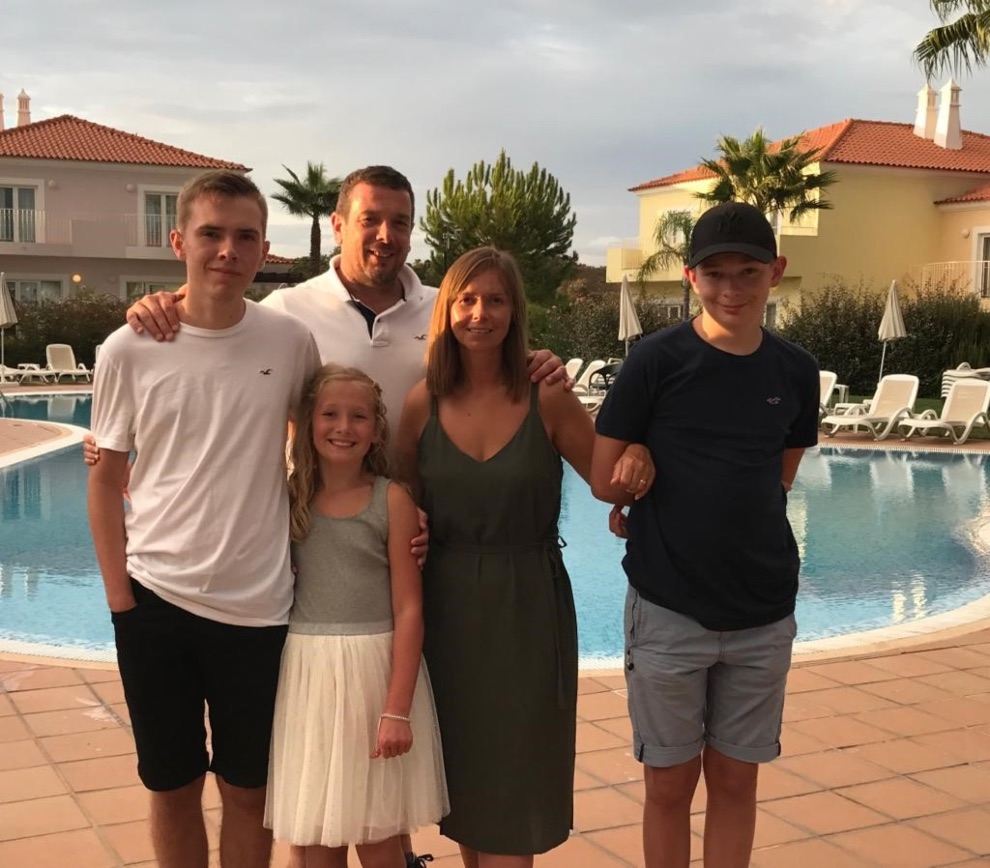
Devon Patient on Ground-Breaking Cancer Trial
One of the first Devon cancer patients to be recruited onto a ground-breaking trial in the region has spoken of his relief at receiving cutting-edge treatment following his diagnosis.
Gary Rowe, 53, from Paignton, was told he had cancer of the throat just before Christmas 2022 and was offered the chance to go on a clinical trial, giving him a new type of radiotherapy, and the prospect of a better long-term outcome.
He has been receiving excellent care under Torbay Hospitaland was told he was eligible for a trial called TORPEdO (Toxicity Reduction using Proton beam therapy for Oropharyngeal Cancer)
The UK-wide study, funded by Cancer Research UK and run by the Institute of Cancer Research, is testing a brand new type of radiotherapy called proton beam therapy.
Proton beam therapy uses high energy particles called protons to deliver a lethal dose of radiation to cancer cells. The proton beam can be targeted onto the tumour with pinpoint accuracy, avoiding damage to healthy tissue around it.
Many patients used to have to travel abroad to receive proton beam therapy, but thanks to core costs for the trial being funded by the charity, patients like Gary are helping to pave the way for others. It also means he is able to receive the newest treatments by attending one of the largest cancer treatment centres in Europe - the Christie Hospital in Manchester - where travel and accommodation costs are met, while receiving additional care and attention from the clinical trial staff at Torbay Hospital.
Clinical trials offer hope for many people and an opportunity to help researchers find better treatments for others in the future.
Speaking on the eve of World Cancer Day, Gary Rowe explained: “Problems for me started when I noticed I started to gag when I was brushing my teeth - my reflux wasn’t good, and I knew I needed to get medical advice. This was early December and after seeing a pharmacist I then booked to see my GP, who was straight on to it and booked me into Torbay Hospital so I could have an endoscopy, which enabled a camera to look inside my throat and investigate what the problem was.”
On 22 December Gary had a biopsy and just before Christmas he was given the news he had throat cancer.
“My first feeling was OK how are we going to deal with this and move on. I was a fit and healthy person, non-smoker, I enjoy athletics, cycling, running and have always kept fit, so for me I just decided to be positive and do whatever was necessary to get through cancer.
“I think for my wife and daughter it was worse. When four people are in a room looking to give you your results, you know things aren’t good.”
The facilities manager is already attending the Christie Hospital Monday to Friday and stays there during this time. He will undergo six weeks of treatment and is also undergoing chemotherapy. He still manages to walk 20,000 steps a day and uses his time whilst in Manchester to get his step intake up.
“Keeping fit whilst having treatment has helped me get through this and being able to walk to the Christie for my sessions has helped me mentally too. I have had excellent care from the team here and feel positive about the future.”
Around 11,700 people are diagnosed with head and neck cancer every year in the UK and more than 8 in 10 patients suffering from throat cancer, such as tonsil and base of tongue cancer, receive radiotherapy as part of their treatment.
Principal Investigator at Torbay and South Devon NHS Foundation Trust, Dr Naomi Cole, explained: “I am so proud that both staff and patients from Devon are playing an important role in research and that we are able to offer patients in the region new opportunities within clinical trials.
“The standard radiotherapy we use to treat Oropharyngeal cancer is called Intensity Modulated Radiotherapy (IMRT). This uses high energy beams of radiation to destroy cancer cells. It is a targeted treatment, but some normal tissues in the head and neck can be damaged by X-rays as they enter and leave the body.
“This can cause some long-term side effects such as a dry mouth and difficulty swallowing. By using proton beam therapy it means there is less damage to the normal tissues around the tumour.
“The TORPEdO trial is investigating whether proton beam therapy will reduce long-term side effects and improve the patient’s quality of life.
“Our team recognises the huge importance of being involved in clinical trials. They provide patients with opportunities to potentially improve outcomes. Trials such as TORPEdO also involve reviews of radiotherapy treatments delivered in Torbay Hospital and maintain and demonstrate the high quality of treatment which we offer to all of our patients.”
Chief executive of Cancer Research UK, Michelle Mitchell, said: “Trials like TORPEdO are giving more people the opportunity to receive tomorrow’s cancer treatments today. Proton beam therapy has huge potential to become a kinder treatment for cancer, and we’re proud to be funding more trials to expand its reach.
“Cancer Research UK has led the way on radiotherapy, supporting research over decades which has made it one of the most versatile treatments for cancer today. But we want to do so much more, and we hope that proton beam therapy will be the next step in transforming the lives of people with neck and head cancer.”














